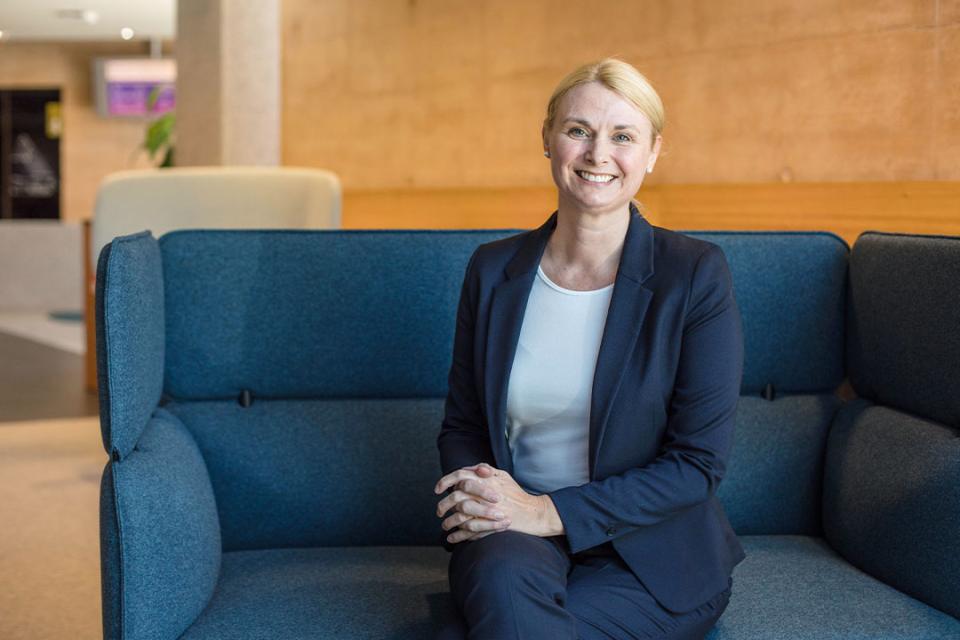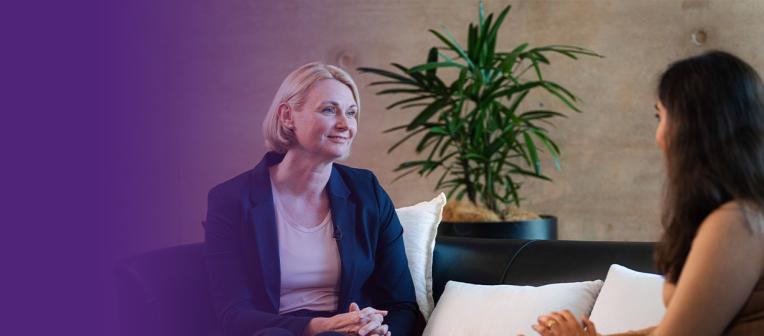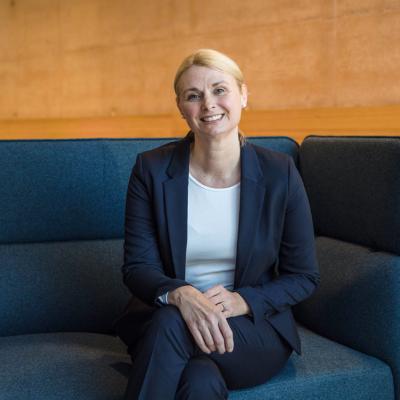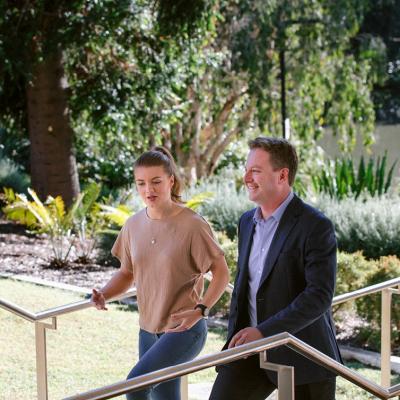If you’re thinking about studying commerce at university but have some questions, we’re here to help.
We interviewed a Bachelor of Commerce student and teacher to learn more about this program and where it could lead your career. Jaanvi is an international student and Debbie Jeffery is a passionate UQ accounting lecturer and Fellow of the Institute of Chartered Accountants.
Keep reading for the full discussion between Debbie and Jaanvi.
What is a Bachelor of Commerce?
Debbie: Studying commerce is about so much more than becoming an accountant or a banker. It’s about giving you the skills you need to be successful in these environments so you can add value to businesses and the global economy.
What is the difference between a Bachelor of Business and Commerce degree?
Debbie: The Bachelor of Commerce focuses on 4 key areas: accounting, finance, business information systems and business analytics. The Bachelor of Business Management is a broader program with 7 different areas you can specialise in.
Who should study commerce?
Debbie: Anyone who is detail-oriented, organised, enterprising and likes working in a structured environment. Also, someone who likes influencing people and their decisions.
Does commerce require maths?
Jaanvi: While understanding advanced math isn’t a requirement to study commerce, I believe having a solid foundation in basic math is advantageous. This is because commerce covers so many areas including accounting and finance, where numerical analysis and skills are very important. But if you don’t feel confident in this topic, there are various resources and support available at UQ to help you.
Why should someone study commerce at UQ?
Debbie: The Bachelor of Commerce at UQ has a fantastic reputation and will open many doors for you. You can major in 4 different areas: accounting, finance, business information systems or business analytics. You can study a double major (2 of these topics), or you can combine the Bachelor of Commerce with a second degree, like science, law or arts.
Why did you decide to study commerce at UQ?
Jaanvi: In high school, I enjoyed English as well as numerical subjects like maths, economics and accounting. As an international student, I was instantly drawn to UQ. Seeing the practical aspects of the commerce program and UQ’s approach to learning was what made me decide to study here.
What teaching activities can students expect to encounter in the classroom?
Debbie: Our teaching activities are very interactive. We also have a signature learning experience where students can manage a live equity portfolio to develop their asset management skills.
What has your experience been like with the teachers here at UQ?
Jaanvi: Absolutely wonderful. There’s been so much support at each step of the way from my lecturers and tutors. Everyone contributes to creating a good environment for learning and growing together.

Debbie Jeffery is a UQ accounting lecturer and Fellow of the Institute of Chartered Accountants.
Are there any extra-curricular activities students can get involved with?
Debbie: Commerce students can compete in case competitions that are held at UQ. There are lots of student societies to join and there’s also the opportunity to study abroad.
What’s something you wish you knew before starting at UQ?
Jaanvi: Your university experience is what you make it. You can be as involved or as laidback as you like. That’s not something I expected, starting my undergraduate degree straight after high school. But it’s really great to have the flexibility to build your schedule in your own way.
What has been your highlight of studying commerce?
Jaanvi: I’ve always had a passion for meeting new people and learning about new cultures. That’s definitely something that shines through here at UQ. There is a wide range of students from all walks of life and being able to connect with them in classrooms and collaborate on projects together has been one of the best parts of this degree.

How do UQ lecturers prepare graduates for the future when the future is uncertain?
Debbie: Our goal is to equip you with the skills and opportunities you’ll need to enter the job of your choosing in future. This includes helping you develop your creativity and critical thinking skills, which will help you navigate businesses through future uncertainty and change.
We have a fantastic Careers and Employability team who have industry connections and offer great opportunities to our students throughout their degree. This team offer various career-readiness opportunities such as the Work-integrated Learning program and internships. As a university, we have great connections with a range of accounting firms, from the Big 4 to smaller firms and lots of work-integrated learning opportunities as well.
What jobs can you get with a Bachelor of Commerce?
Debbie: A commerce degree can prepare you for lots of different career opportunities. For example:
- If you’re interested in finance, you can work in an investment bank.
- If you’re interested in accounting, you can work as a corporate treasurer, auditor or accountant.
- If you’re interested in business information systems or business analytics, you can work in data science.
What do you want to achieve with your commerce degree?
Jaanvi: I want to use these skills and the learnings I’ve gained to make meaningful contributions in the workplace. I’m particularly interested in the field of audit within accounting at the moment, so I’d like to do something in that space.
How has your commerce degree prepared you for a career in the field?
Jaanvi: I believe I’ve been equipped with the learnings and skillset to do well in future. The Careers and Employability team have been a huge support in gearing me up for the future. I feel confident, and I’m eager to see what the next chapter will be like for me.
What’s your advice for anyone considering studying commerce?
Debbie: Take every opportunity that you can. Get involved with student societies and activities on campus. Look at work experiences and internships, because those are the things that will set you apart from others when applying for jobs.
Jaanvi: Research the program thoroughly. Talk to current students and find a specific area of business that piques your interest. This will allow you to make a more informed decision about what you study and what jobs you prepare for within the diverse field of commerce.
Learn more about the Bachelor of Commerce or discover what it’s like to study other programs at UQ.






